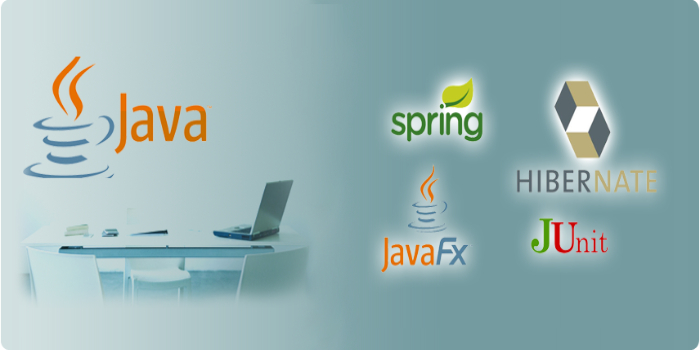
What Java Technologies will Rule in 2020 for Web Application Development?
Web applications are an integral part of our daily needs and the internet is full of such applications. These web applications have different functionalities ranging from online forms processing, voting polls, online shopping, booking flights, secure online transactions and many more. However, a major challenge for enterprises is to choose a Java technology to create a web application. The best possible method is to hire Java development Company as per your application requirement and its functionality.
This blog post provides an overview of different Java technologies involved in building various types of web applications, and proper guidance to use them. Before going deep in detail, it is important to understand what a web application is, what Java technologies are present for the development, and what tools can ease the development work.
What Is a Web Application?
Web applications are distributed applications that can run on multiple computer devices and communicate via the server network. Most people use web applications with the support of a platform termed as the browser. For the enterprise, the operational cost is reduced as web applications can be managed easily without deploying and installing software on thousands of client computers. As mentioned earlier, Web applications are used for different purposes of webmail, online retail sales, discussion boards, online banking, and booking tickets. A single web application can be accessed and used by millions of people with browsers.
Java web application development is a complex process that requires building different mini-programs, these include user interfaces and other functionalities. In addition, web applications need an additional markup language, including HTML, CSS, or JavaScript. Also, several applications are based on the Java programming language only, which is perfect because of its versatility. A web application can be a single page displaying the current date and time or can range to a complex application to book flights, hotels, and taxis for the next vacation.
Java Technologies to Use in Web Applications
There are several Java technologies, but in this blog post only the ones most frequently used are mentioned. All technologies are not required to build a web application. In fact, a web application often consists of a single page created with the JavaServer Pages (JSP) technology. No matter how many are available to use, it’s good to know different ones and how they can be beneficial in web application development.
1. Java Servlet API
The Java Servlet API runs in the form of an HTML user interface or a simple application GUI on the server-side. It is used to enhance the performance of web applications hosted by web servers. Java Development Company prefers implementing Java Servlet extensions to build web applications.
2. JSP Technology
JavaServer programming gives a simple and fast way to build dynamic content. It provides the additional functionality of using snippets of the servlet code into the text-based document. JSP includes static data expressed in the text-based format termed as HTML, Wireless Markup Language (WML) or XML. These elements are determined as dynamic content constructor.
3. JavaServer Pages Standard Tag Library
It includes the iterator and conditional tags to manage flow control, accessing databases with the SQL, internalization, manipulate XML documents, and other useful functions.
4. Java Message Service API
The merging of Java technology with enterprise messaging in the form of a JMS API works as a powerful tool to address enterprise computing problems.
5. JavaMail API and the JavaBeans Activation Framework
JavaMail API is used to send e-mail notifications. In addition, one can use the JavaBeans Activation Framework (JAF) API, which determines the data type, encapsulate the access, and discover the operations present.
6. Java API for XML Processing
It is flexible as well as facilitates the use of XML-compliant parser within the application and in addition, supports the W3C schema for better efficiency.
To know more about these technologies and implement them for web application development you may hire Java developer from a reputed agency.
Frequently Asked Questions

1. Can Java be used for Web applications?
Java is a popular name in the world of programming languages that can be used to develop complex web applications and for the software platform. Also, most modern browsers support Java applets, which can be run within the web pages.
2. Which edition of Java is used for Web application?
The Java technologies used for web application development are Java Enterprise Edition (JEE), Java Standard Edition (JSE), JavaServer Pages (JSP), and JavaServer Pages Standard Tag Library (JSTL).
3. How does a web application work?
The web application needs a web server to manage the requests from the client, an application server to perform the tasks requested, and, also a database to store the details. User makes a request to the web server over the web, either using a web browser or the application’s UI.
4. What are the Web technologies in Java?
Java Web Application Technologies
• JSF
• Applets
• Servlets
• Model 2 Architecture
• Java Server Pages
• Component-Based Architecture
• JavaFX
• Adobe Flex
5. What are the latest Web technologies?
• JavaScript
• AI or Bots
• Single Page Application
• Mobile-Friendly Website
• Blockchain Technology
• Progressive Web App
• Motion UI
• Cyber-security
Wrapping Up
These are some of the major Java technologies that are used to build engaging & secure web applications. Java is not only used for web application development, but Java mobile apps are also highly popular among users. Whatever your business enterprise wants to develop for user engagement, make sure you consult a reputed development company having proper resources to address all your business needs.

